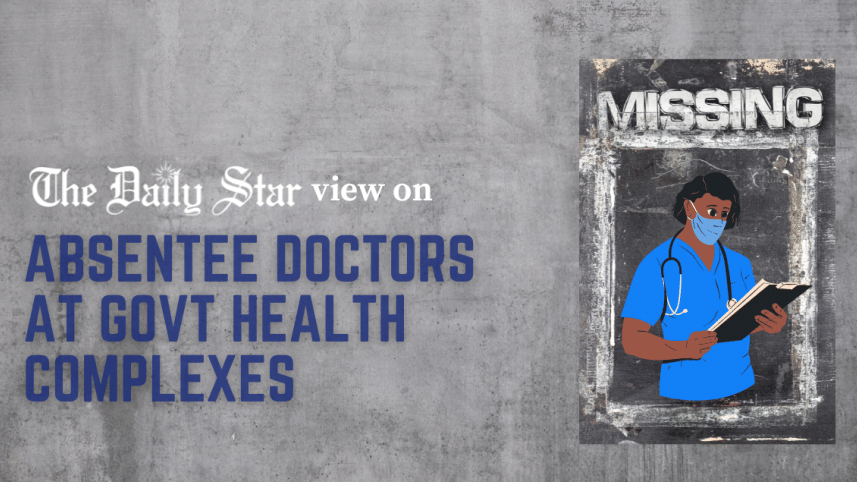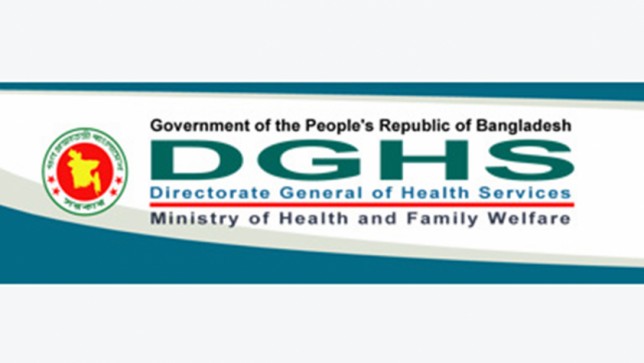Don't make a mockery of a noble profession

In an overwhelming majority of union and upazila health complexes across Bangladesh, absentee doctors are an all-too familiar phenomenon. These doctors, who are on the government payroll and are obligated to serve their patients to the best of their abilities, sometimes disappear for days on end – even months – without anyone knowing about their whereabouts or when they would return to work. In other cases, doctors only attend hospitals once or twice a week, spending a majority of their time in private practices, charging exorbitant amounts to the same patients whom they would have treated for free or at heavily subsidised rates at the government healthcare facilities.
A case in point, as reported by this daily, is a doctor of a government hospital in Gopalganj, who has been absent from work since March 16, 2020. Two years later, no one knows where he is. Even though such an incident should have been reported within 60 days as per service rules, it took the authorities of the facility six months to report the incident to the Directorate General of Health Services (DGHS). According to the DGHS, many doctors remain absent without leave yet continue to be paid by the government. It takes the healthcare facilities months to report the absentees, and another three to six months for the authorities to replace them.
There are around 25,000 physicians engaged in hospital service under the health directorate, but there is no reliable data on how many of these doctors are absentees. The DGHS, after issuing a directive to the chiefs of health facilities across the country to report doctors absent without leave earlier this year, received names of 161 doctors and launched disciplinary action against 78 of them. The monitoring wing has another list of at least 300 absentees. The real number of such absentees, however, is much higher.
In a country where government healthcare facilities are severely understaffed and resources overstretched, these "missing" doctors are doing a serious disservice to their patients and the nation at large, and making a mockery of the healthcare profession. What is most alarming is that the authorities have actually enabled this unacceptable practice by systematically failing to take prompt and adequate actions against the absentees; in fact, in many cases, they even colluded with the latter to protect them. Currently, at least 250 absentee doctors are yet to be meted out punishments, with some cases pending since 2007.
This deplorable and unethical practice cannot be allowed to wreak havoc on an already ailing healthcare system. While it is appreciable that the DGHS is taking steps to identify absentee doctors, it must take exemplary action against them to send a clear message to others that such action will no longer be tolerated. It must also review its existing policies, service rules and monitoring mechanisms to identify loopholes within the system, and engage with hospital authorities to institute discipline in their respective institutions. Medicine is supposed to be a noble profession, and it is a shame that our doctors are making fools of the people they have taken an oath to serve.



 For all latest news, follow The Daily Star's Google News channel.
For all latest news, follow The Daily Star's Google News channel. 

Comments